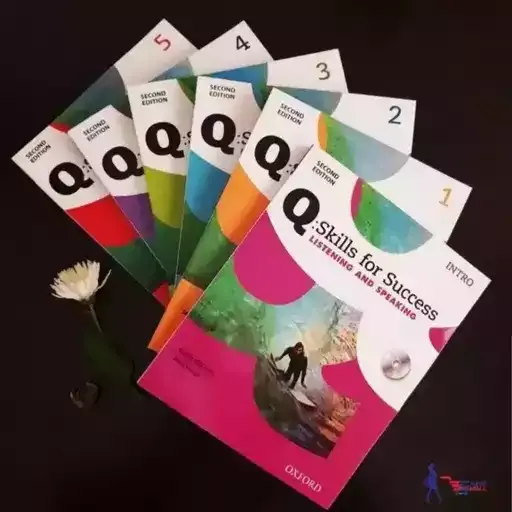Q Skills for Success:
To succeed in various fields, individuals require a unique set of skills. While technical knowledge and comprehension are crucial, solving problems, making decisions, communicating effectively, and adapting are equally vital. These skills, commonly called "Q Skills," significantly influence one's degree of success. This article will examine the potential advantages of Q Skills and their influence on professional, academic, and personal development.
The Value of Q-Skills in Achieving Success:
What are Q Skills?
The Connection between Q Skills and Success:
Q
Skills are desirable for success in today's fast-paced and interconnected
world. While technical skills and knowledge are necessary, Q Skills allow
individuals to apply their expertise effectively, communicate their ideas,
collaborate, and navigate challenges. Research has shown that individuals with
strong Q Skills often outperform those with solely technical abilities.
Individuals with these skills can solve complex issues, adapt to altering
circumstances, and positively impact their environments.
Developing Q Skills for Personal Growth:
Personal
growth is a lifelong journey, and developing Q Skills is crucial. Here are some
key Q Skills that contribute to personal growth:
Critical Thinking:
Problem-Solving:
Solving
a problem means recognizing it, examining it critically, and providing workable
answers. It requires reason, imagination, and openness to new possibilities.
Thinking critically and creatively about problems is the key to success in life.
Decision-Making:
Gathering
relevant information, weighing available choices, and settling on the most
appropriate action is effective decision-making. It calls for analysis,
creative problem-solving, and careful consideration of potential outcomes.
Improving one's decision-making ability allows one to behave responsibly and
with knowledge.
Adaptability:
When
discussing adaptability, we mean the ability to adjust to and even flourish in
new situations. It requires adaptability, tenacity, and enthusiasm for taking
on new tasks. Developing adaptability skills allows individuals to navigate
uncertainties, learn from setbacks, and seize growth opportunities.
Enhancing Communication Skills for Success:
Success
in many aspects of life requires effective communication, so developing your
communication skills is important. Some essential communication abilities that
can help you succeed are as follows:
Listening Skills:
Listening
skills involve attentiveness, empathy, and understanding and interpreting
verbal and nonverbal cues. Effective listening fosters better understanding,
builds rapport, and enables individuals to respond appropriately in
conversations and relationships.
Speaking Skills:
Speaking
skills involve the ability to articulate thoughts and ideas clearly and
confidently. It includes effective verbal communication, persuasive speaking,
and the capacity to adapt communication styles to different audiences. Strong
speaking skills enhance influence, leadership, and the ability to convey
messages effectively.
Writing Skills:
Writing
skills encompass expressing ideas, thoughts, and information clearly and
concisely through written mediums. It involves proper grammar, organization,
and the capacity to tailor writing to specific purposes and audiences. Strong
writing skills are essential for effective communication in various
professional and academic settings.
Reading Skills:
Reading
skills encompass the ability to comprehend and interpret written information
accurately. It involves critical reading, identifying key points, and
extracting relevant information. Strong reading skills enhance learning,
research abilities, and staying informed in an information-driven world.
The Role of Q Skills in Professional Success:
Q
Skills are instrumental in achieving professional success, regardless of the
industry or field. Here are key Q Skills that contribute to professional
success:
Leadership Abilities:
Leadership
abilities involve inspiring and influencing others, setting goals, and guiding
teams toward success. It involves the ability to communicate, make sound
decisions, and inspire and involve others. The ability to lead effectively
equips people to make decisions, encourage creativity, and cultivate a
productive workplace.
Teamwork and Collaboration:
Teamwork
and collaboration involve working effectively with others, building
relationships, and leveraging collective strengths. It includes communication,
active listening, conflict resolution, and the ability to contribute to group
goals. Strong teamwork and collaboration skills improve productivity,
creativity, and overall team success.
Time Management:
Time
management involves prioritizing tasks, setting goals, and effectively and
efficiently utilizing time. It entails things like preparation, organization,
and forethought. Effective time management skills are crucial for completing
tasks on time, minimizing stress, and increasing output.
Resilience and Stress Management:
Maintaining
mental and emotional stability during stress is crucial for returning from
misfortune. Caring for oneself means finding original approaches to
difficulties and asking for assistance when necessary. Developing resilience
and stress management skills helps individuals thrive in challenging work
environments and maintain work-life balance.
Nurturing Q Skills for Academic Achievement:
Q
Skills are instrumental in achieving academic success, as they go beyond
subject knowledge and help individuals excel in various academic pursuits. Here
are key Q Skills for academic achievement:
Research and Information Gathering:
Research and information-gathering abilities are Finding, evaluating, and synthesizing pertinent information from various sources. It includes effective internet research, critical analysis, and proper citation. Strong research skills enhance academic writing, critical thinking, and evidence-based decision-making.
Analytical Skills:
Analytical
skills involve examining complex issues, identifying patterns, and drawing
meaningful conclusions. It is all part of analyzing data, using logic to solve
problems, etc. Superior analytical abilities improve student success in school
across all subjects and encourage in-depth learning.
Presentation and Public Speaking:
Presentation
and public speaking skills involve delivering information or ideas effectively
to an audience. It includes organizing content, engaging delivery, and using
visual aids. Strong presentation and public speaking skills enhance academic
presentations, class participation, and the ability to communicate ideas
clearly and confidently.
Exam Preparation and Test-Taking Skills:
Exam
preparation and test-taking skills involve strategies for studying, managing
time during exams, and answering questions effectively. It includes developing
effective study plans, practicing sample questions, and managing test anxiety. Strong
exam preparation and test-taking skills improve academic performance and reduce
stress during examinations.
Cultivating Q Skills for Career Advancement:
Q
Skills play a vital role in career advancement, helping individuals stand out
and thrive in their professional journeys. Here are key Q Skills for career
advancement:
Networking and Relationship Building:
Networking
and relationship-building skills involve establishing connections, fostering
professional relationships, and leveraging them for career opportunities. It
includes effective communication, active listening, and maintaining a
professional online presence. Strong networking and relationship-building
skills expand professional networks, open doors to new opportunities, and
support long-term career growth.
Negotiation Skills:
The
ability to negotiate involves the ability to resolve disagreements, create
win-win deals, and effectively represent one's interests. It involves
discussing things, finding solutions, and considering everyone's viewpoints.
Strong negotiation skills enable individuals to secure favorable outcomes,
advance professionally, and build successful collaborations.
Problem-Solving in the Workplace:
Problem-solving
in the workplace involves identifying challenges, analyzing root causes, and
developing innovative solutions. It includes critical thinking, creativity, and
collaboration. Strong problem-solving skills enable individuals to contribute
to organizational success, resolve conflicts, and drive continuous improvement.
Continuous Learning and Professional Development:
Continuous
learning and professional development involve a commitment to ongoing skill
enhancement and staying updated in one's field. It includes seeking new
learning opportunities, attending workshops or conferences, and staying
informed about industry trends. Cultivating a mindset of continuous learning
and professional development ensures individuals remain competitive, adaptable,
and prepared for new challenges.
Conclusion:
Q
Skills are essential for success in today's dynamic and interconnected world.
They aid in development and success in the workplace and academic and
professional progress. Q. Skills like critical thinking, problem-solving, communication, adaptability, collaboration, time management, and continuing to
learn to help people deal with problems and take advantage of chances in
many areas of life, Invest in your Q Skills and unlock your full potential.
FAQs
1. Can Q Skills be learned and improved?
A.
Yes! Learning and developing Q Skills is possible with time, effort, and the
right attitude. You can see significant growth and improvement over time by
consciously enhancing your Q Skills.
2. Are Q Skills only important in professional settings?
A.
No, Q Possessing relevant skills is crucial in many contexts, from the personal
to the academic to the professional. These skills aid personal growth,
effective communication, original problem-solving, and adaptable thought
processes.
3. How can I develop my critical thinking skills further?
A.
Put your analytical, logical, & evaluative abilities to the test by giving
them a good workout with some challenging tasks. Doing so might take exploring
works that provoke deep thinking, participating in lively conversations,
working out puzzles or riddles, or searching for new points of view.
4. Are Q Skills more important than technical knowledge?
A.
Q Skills and technical knowledge are both important for success. While
technical knowledge provides the foundation, Q Skills enable individuals to
apply that knowledge effectively, communicate ideas, collaborate with others,
and navigate challenges. If you want, these abilities will be crucial to your
long-term success.
5. How can I improve my social abilities or talking
skills?
A.
Absolutely! Practice and self-awareness are the keys to developing better
communication abilities. Join a public speaking club, have group conversations,
and ask for critiques to improve your communication skills. Reading books on
effective communication and observing good communicators can also enhance your
skills.
Free Image Converter | Any Image Format Converter | Online & Free
The Fundamentals of Business: Exploring Key Concepts and Principles
Asteroid 2013 WV44: A Celestial Marvel Approaching Earth
Covid-19 Pandemic: Understanding The Emergence of the EU11 COVID-19
iPhone 15: Anticipating High Sales and Superior Features
Samsung Galaxy Z Flip5: The Next Generation of Foldable Innovation
YouTube Unveils Revolutionary AI-Powered Dubbing Tool
Uncertainty Of The Titanic Submersible: Complexities Of Oxygen
The Future of Apple Vision Pro || Vision Pro Headset
Unveiling the Impact of Human Activities on EEarth'sAxis
Steam Next Fest Launches Today, Offering Access To 100s Of Game Demos
Want to See These Galaxy Z Fold 5 Features
The Future of Cloud Gaming & its Effect on the Gaming Community
Impact of New Streaming Services on the Entertainment Industry
Social Video Takes Off: Leverage the Power of Video Marketing








